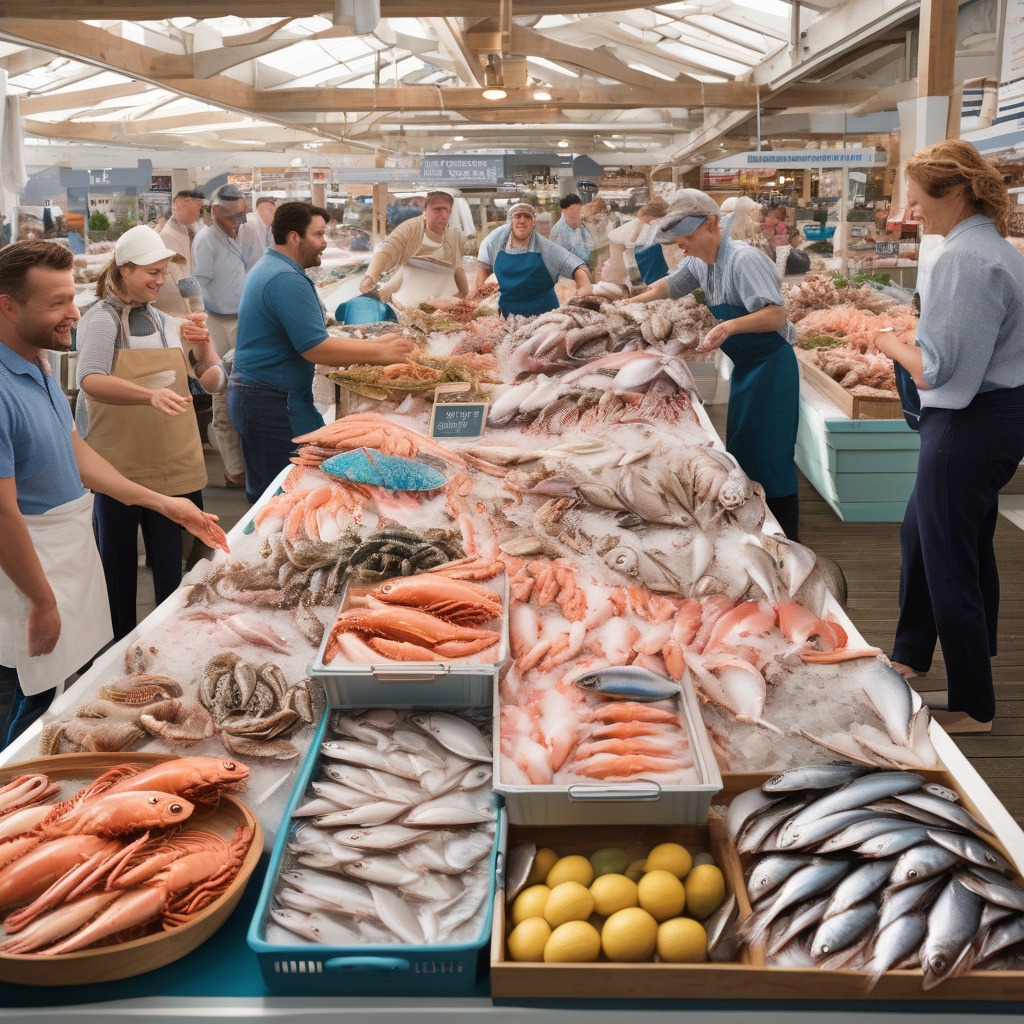COLUMN: Selling the Sustainability of Seafood
In recent years, there has been a growing concern about the sustainability of seafood due to overfishing and environmental issues. Consumers are becoming more conscious of where their food comes from and how it is sourced. This shift in consumer behavior has led to an increased demand for sustainable seafood options in the market.
To address this demand, organizations like the Marine Stewardship Council (MSC) and the Aquaculture Stewardship Council (ASC) have been working to promote sustainable fishing and aquaculture practices. These councils play a crucial role in certifying fisheries and aquaculture operations that meet specific sustainability standards. By doing so, they help consumers make more informed choices about the seafood they purchase.
One of the key ways these councils are promoting sustainability is through eco-labeling. Products that meet the sustainability criteria set by the MSC or ASC are awarded an eco-label that certifies their sustainability. These labels serve as a quick and easy way for consumers to identify seafood products that have been sourced responsibly.
For retailers, selling sustainable seafood can offer a competitive advantage. By offering eco-labeled seafood products, retailers can attract environmentally conscious consumers who are willing to pay a premium for sustainable options. This not only helps retailers differentiate themselves in the market but also contributes to the overall goal of promoting sustainable practices in the seafood industry.
Moreover, by partnering with organizations like the MSC and ASC, retailers can access a wider range of sustainable seafood products. These partnerships provide retailers with a direct link to certified suppliers, ensuring that they can offer a diverse selection of sustainable options to their customers.
In addition to eco-labeling, retailers can also educate their customers about the importance of sustainable seafood. By providing information on why sustainability matters and how their purchasing decisions can make a difference, retailers can help raise awareness and encourage more people to choose sustainable options.
Ultimately, selling the sustainability of seafood is not just about meeting consumer demand; it is about safeguarding the future of our oceans and marine life. By supporting sustainable practices in the seafood industry, retailers can play a vital role in protecting the environment and ensuring a steady supply of seafood for generations to come.
Actions by the Marine Stewardship Council and Aquaculture Stewardship Council are helping nudge such practices into the mainstream, making sustainable seafood more accessible to consumers and empowering them to make environmentally friendly choices when it comes to their food purchases.
sustainability, seafood, eco-labeling, Marine Stewardship Council, Aquaculture Stewardship Council
